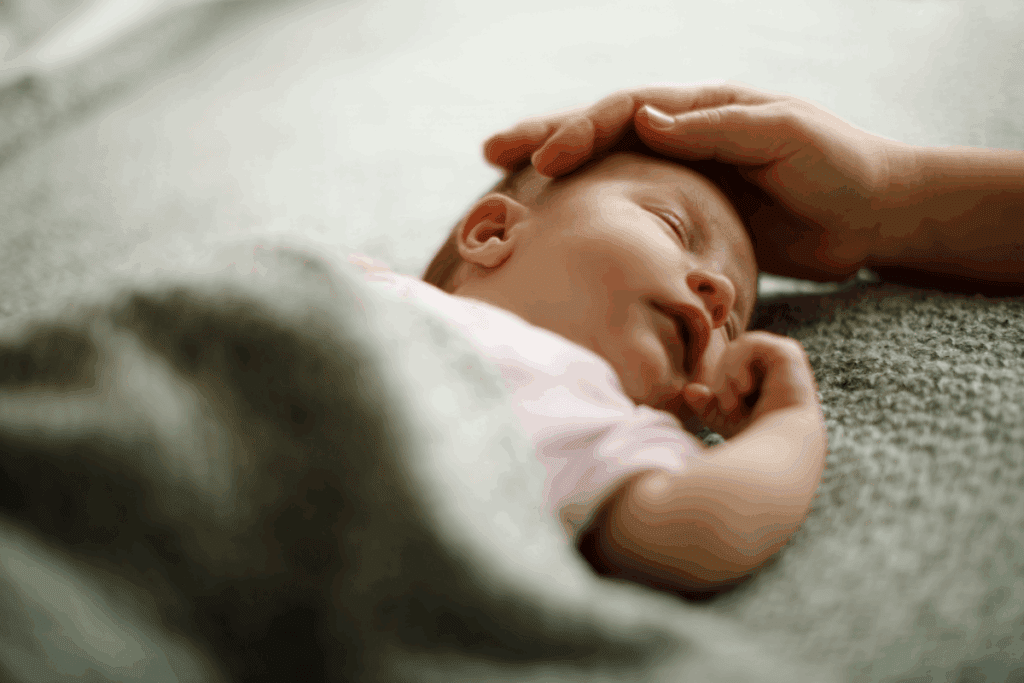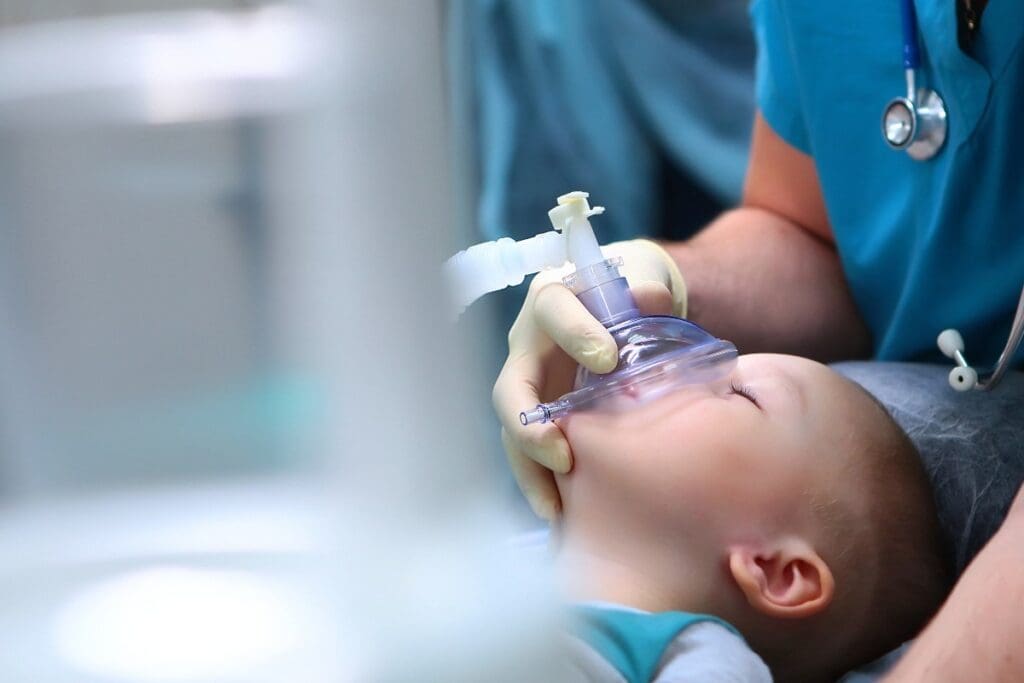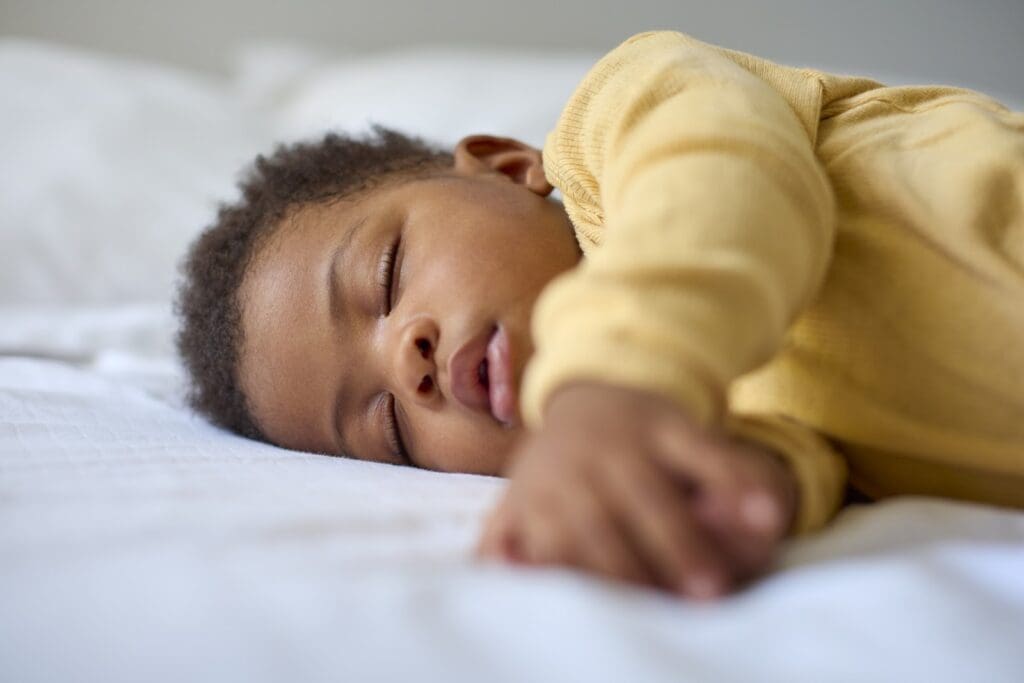We know parents worry about their kids’ sleep after general anesthesia. At our place, we focus on top-notch medical care and support for families. We want to help you through your child’s treatment.
After anesthesia, kids might sleep more than usual. Butlivhos big sleep problems are rare in healthy kids after one simple surgery. Studies say anesthesia might make sleep a bit worse. This mostly happens in kids who have been under anesthesia a lot.

We’ll look into how general anesthesia changes kids’ sleep. We’ll talk about common worries and share new research. Our aim is to help you understand what’s happening and how to help your child get better.
Key Takeaways
- Temporary changes in sleep patterns are possible after general anesthesia in children.
- Significant or prolonged sleep effects are uncommon in healthy children after single, uncomplicated procedures.
- Multiple or prolonged exposures to anesthesia may increase sleep disturbances.
- Recent research provides insights into the effects of anesthesia on children’s sleep quality.
- Comprehensive support is available for patients and their families throughout the treatment journey.
The Science Behind Children’s Sleep After Anesthesia
To understand how anesthesia affects kids’ sleep, we need to know about their sleep cycles. Kids’ sleep patterns change as they grow. It’s important to understand these changes to see how anesthesia impacts them.
Normal Sleep Architecture in Children
Children’s sleep goes through different stages, like REM and non-REM sleep. These stages help their bodies and minds recover. Children’s brains are very active while they sleep, helping them remember and learn. Their sleep cycles usually last between 80 to 120 minutes, with more REM sleep in younger kids.
How Anesthesia Temporarily Disrupts Sleep Cycles

General anesthesia can mess with kids’ sleep patterns. Studies show it can make sleep quality worse and cause more sleep problems. Anesthetic agents can change how sleep stages progress, leading to broken sleep. This problem usually goes away, but it worries parents.
- Disruption of normal sleep stage progression
- Increased sleep fragmentation
- Potential for increased sleep disturbances
Recovery Timeline for Normal Sleep Patterns
How long it takes for kids to get back to normal sleep after anesthesia varies. Usually, most kids get back to normal in a few days to a week. Things that affect recovery include the surgery type, the child’s age, and health. Parents should watch their child’s sleep closely and talk to their doctor if problems last.
- Monitor sleep patterns closely after anesthesia
- Report persistent sleep disturbances to healthcare providers
- Be patient, as recovery times can vary
Recent studies show how important it is to know how anesthesia affects kids’ sleep. By understanding these effects and following a recovery plan, parents can help their kids get back to normal sleep.
5 Common Sleep Changes Parents May Notice
After a child has general anesthesia, parents often see changes in their sleep. These changes can worry parents, but knowing what to expect can help. We will look at the common sleep changes parents might see after their child has general anesthesia.
Excessive Daytime Sleepiness
One common side effect of anesthesia is feeling very sleepy during the day. Children might need more naps or sleep in later. This is usually temporary and most kids go back to normal sleep in a few days.

Difficulty Falling or Staying Asleep
Some kids might find it hard to fall or stay asleep after anesthesia. This is because the anesthetic can mess with sleep cycles. Making a cozy sleep space can help with this.
Changes in Sleep Quality and Duration
Parents might see changes in how well and long their child sleeps after anesthesia. Some might sleep better, while others might have lighter sleep. These changes usually don’t last long and go away as the child gets better.
Nighttime Awakening
Another change parents might see is waking up at night. Kids might wake up and have trouble falling back asleep. This can upset both the child and parents, but it’s usually just a short-term effect of anesthesia.
Knowing about these sleep changes can help parents support their child better during recovery. If sleep worries last, it’s good to talk to a healthcare professional for advice.
How General Anesthesia Affects the Developing Brain
Using general anesthesia in kids raises big questions about brain development. Recent studies have given us new insights. They help us understand how it works and its long-term effects.
Mechanism of Action in Pediatric Patients
General anesthesia makes kids sleep and feel no pain by affecting the brain. The young brain grows fast and is more sensitive to anesthetics. Anesthetic agents affect brain cells and how they work.
The main ways it works include:
- Changing GABA receptors to make kids sleepy
- Stopping NMDA receptors to affect learning and memory
- Working with other brain chemicals to control body functions
How Long Anesthetic Agents Remain in Children’s Systems
The time anesthetic agents stay in kids’ bodies depends on several things. This includes the type of drug, the dose, and the child’s age and metabolism. Most anesthetics leave the body in a few hours.
But, some research shows that some anesthetics might affect the brain more in the long run. This has led to more studies on how it might change kids’ thinking and behavior later on.
Differences Between Types of Anesthesia
There are many types of anesthesia, like general, regional, and local. The choice depends on the surgery, the child’s health, and other factors.
General anesthesia is often used in kids because it keeps them safe and pain-free during surgery. Knowing the differences between types helps us make better choices for kids’ care.
Some main differences are:
- General Anesthesia: Makes kids unconscious and is used for big surgeries.
- Regional Anesthesia: Blocks pain in a bigger area, like the lower body, and is used for things like C-sections.
- Local Anesthesia: Just numbs a small area and is used for small procedures.
By understanding general anesthesia and its effects on kids’ brains, we can support them better during surgery and their families too.
Age-Specific Considerations for Post-Anesthesia Sleep
Children of different ages react differently to anesthesia, which affects their sleep after a procedure. It’s important to know these age-specific factors to help them recover well.
Infants and Toddlers (0-3 years)
Infants and toddlers face unique challenges with full anesthesia and their developing brains. Studies show that most healthy kids don’t have lasting effects from one simple anesthesia. But, parents should watch for any sleep changes.
It’s key to keep a close eye on these young ones and adjust their care as needed. This ensures they stay comfortable and safe.
School-Age Children (4-12 years)
School-age kids might have trouble sleeping after general anesthesia. They might find it hard to fall asleep or wake up at night. Parents should stick to a regular sleep schedule and make their sleep area cozy.
Adolescents (13-18 years)
Adolescents might worry about the safety of anesthesia and how it affects their sleep. We tell them that general anesthesia is safe when done by experts. Yet, some might notice changes in how well they sleep.
Knowing these age-specific needs helps us support our young patients and their families. We make sure every child gets the care they need to recover well.
What Research Reveals About Post-Anesthesia Sleep Patterns
We look into the latest studies on how general anesthesia affects sleep in kids. Recent research has given us important insights into anesthesia’s impact on kids’ sleep.
Evidence from Sleep Disturbance Score Studies
Studies on sleep disturbance scores show that kids might see changes in sleep quality after general anesthesia. These studies look at sleep duration, nighttime wake-ups, and how hard it is to fall asleep. General anesthesia might increase sleep problems in the short term.
Findings from MASK and PANDA Studies
The MASK and PANDA studies are key for understanding anesthesia’s effects on kids’ brains and behavior. They mainly focus on brain development but also shed light on sleep after anesthesia. The results suggest that single exposures to general anesthesia might not harm sleep long-term. But, we need more research.
Single vs. Multiple Anesthesia Exposures
It’s also important to know if getting anesthesia more than once affects sleep differently. Some studies suggest that getting anesthesia many times might lead to more sleep problems than just once. But, the research is growing, and we need more to understand this fully.
Understanding how general anesthesia affects kids’ sleep is key for good care. By keeping up with the latest research, we can help families and ensure the best results for our patients.
6 Tips to Help Your Child Sleep Better After Anesthesia
Helping your child recover from anesthesia is more than just managing pain. It also means supporting their sleep. As a parent, you are key to your child’s comfort and well-being during this time. Here are some practical tips to help your child sleep better after general anesthesia.
Maintain a Consistent Sleep Schedule
Keeping a regular sleep schedule helps your child’s sleep patterns after anesthesia. Consistency is key to helping their body adjust to the side effects of anesthesia. Try to keep the same bedtime and wake-up times as before the procedure.
Create a Comfortable Sleep Environment
A comfortable sleep environment is important for your child’s rest. Keep the room cool, dark, and quiet, and use white noise machines if needed. A good mattress and pillows also help a lot.
Monitor Hydration and Nutrition
Drinking enough fluids and eating nutritious meals are key for recovery. Encourage your child to drink plenty of fluids and eat healthy meals. Avoid heavy meals before bedtime.
Manage Pain Effectively
Managing pain well is important for your child’s comfort and sleep. Follow the pain management plan given by your healthcare provider. Don’t hesitate to ask for help or changes if needed.
By using these strategies, you can help your child sleep better after anesthesia. This supports their recovery and well-being. Remember, every child is different, so it may take time to find what works best for them.
Conclusion
Children might have short-term sleep changes after general anesthesia. But, big or lasting sleep problems are rare in healthy kids after one simple surgery. It’s key for parents to know about general anesthesia and its sleep effects on kids.
Our team is dedicated to top-notch medical care. We make sure our patients and families get the support they need. We want to ease worries about general anesthesia’s safety and sleep impact on kids, assuring it’s safe in skilled hands.
Helping your child sleep well after anesthesia involves a few steps. Keep their sleep schedule regular, make their sleep area comfy, and manage pain well. We hope this info helps you understand anesthesia’s sleep effects on kids. This way, you can make better choices for your child’s care.
FAQ
What is general anesthesia, and how does it affect children?
General anesthesia makes a person very sleepy and unable to move. It also helps with pain. For healthy kids, it usually doesn’t mess up their sleep for long after one time.
How long does anesthesia stay in a child’s system?
Anesthetics usually leave the body in a few hours. But, some might stick around longer. How long depends on the type of anesthesia, the child’s age, and their health.
What are the common sleep changes parents may notice after anesthesia?
Kids might sleep a lot during the day or have trouble sleeping at night. They might also wake up a lot at night. These problems usually go away by themselves.
How can I help my child sleep better after anesthesia?
Stick to a regular sleep schedule and make their sleep area comfy. Keep them hydrated and fed well. Also, manage their pain to help them sleep better.
Are there any differences in how various types of anesthesia affect children’s sleep?
Yes, different anesthetics can affect sleep in different ways. Our team will talk to you about the one used and how it might affect your child’s sleep.
Is general anesthesia safe for children?
General anesthesia is usually safe for kids when given by experts in a safe place. But, like any treatment, there are risks and side effects. We’ll go over these with you.
How do you wake a child up from anesthesia?
Our team watches over the child as they wake up. We make sure they’re comfortable and safe before moving them to a special recovery area.
Can multiple exposures to anesthesia affect children’s sleep more significantly?
Studies say kids might have sleep problems more often if they have anesthesia many times. But the risk is low. We’ll talk about your child’s situation with you.
References
- Centers for Disease Control and Prevention. (2023). Pediatric anesthesia safety and neurodevelopment research.https://www.cdc.gov/pediatric-anesthesia/research/index.html






